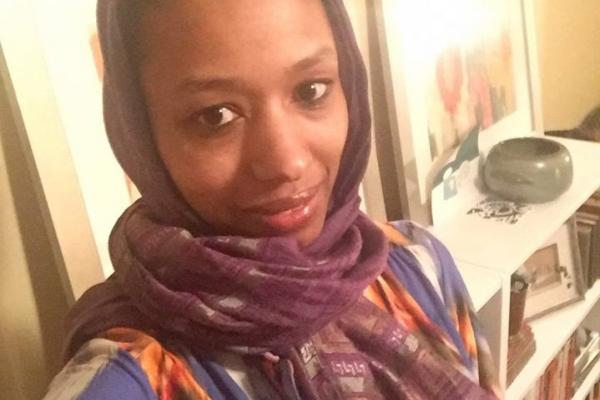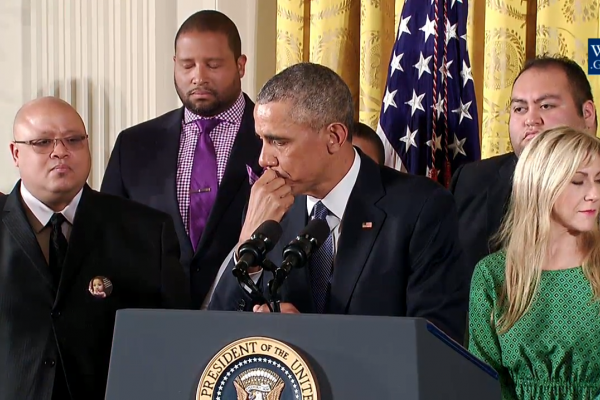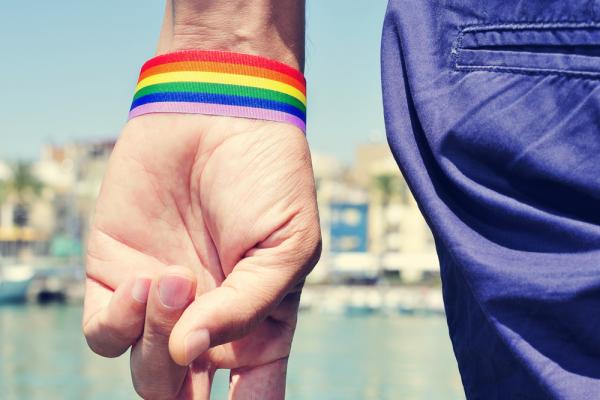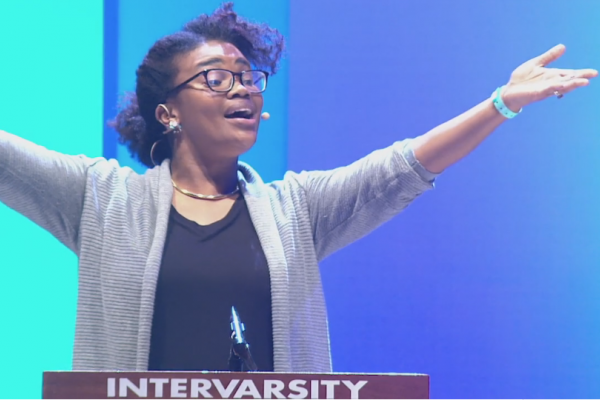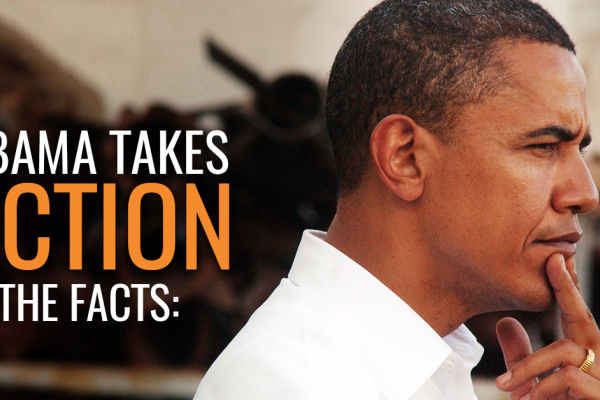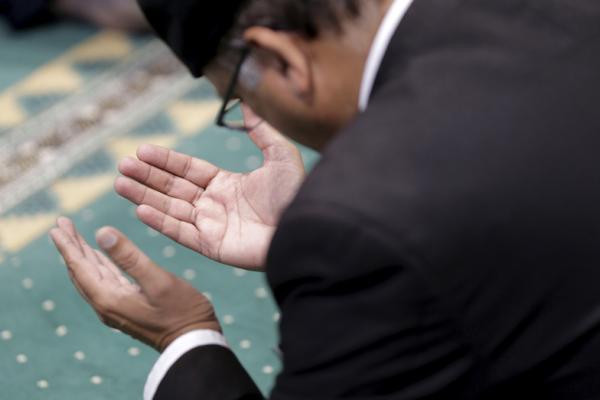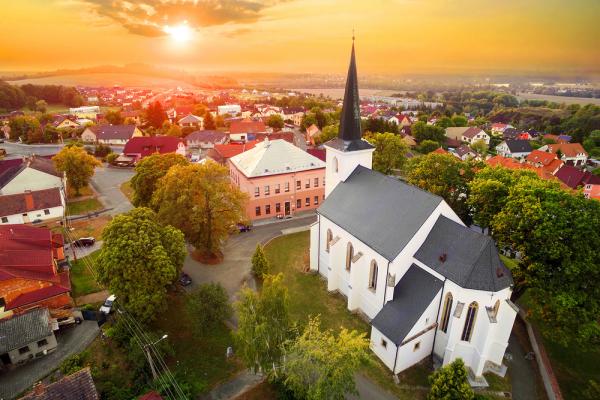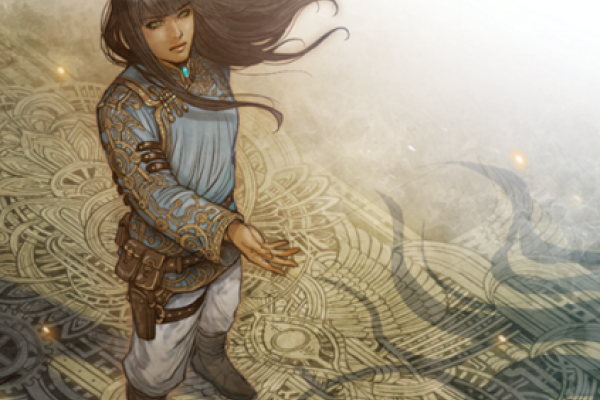Wheaton College suspended Larycia Hawkins, professor of political science, on Dec. 15 after she said Christians and Muslims "worship the same God." Hawkins' primary purpose was to announce that she would wear hijab during Advent to show her solidarity with Muslims in the United States facing persecution.
Now, according to a statement released Jan. 5, Wheaton Provost Stanton Jones delivered to President Philip Ryken a "Notice of Recommendation to Initiate Termination-for-Cause Proceedings regarding Dr. Hawkins."
President Obama's eagerly anticipated announcement about his executive action regarding gun violence was a rare emotional speech for the president. Read the full text of what he said here.
An influx of requests from Christian universities for the right to discriminate on the basis of gender identity have flooded the Department of Education. As many as sixty Christian schools have submitted requests for Title IX waivers since 2014, when the Department of Education announced their protections were inclusive of transgender students. Before this clarification, only a handful of universities had asked for such waivers in the 40-plus years since Title IX was established in 1972. But the decision to extend protections to transgender students has prompted dozens of Christian schools request these waivers.
I, along with my colleagues Leroy Barber, Dominique D. Gilliard, Mae Cannon, Micky Jones, Dr. Soong-Chan Rah, and Dr. Brian Bantum, were struck that InterVarsity had made a bold and unique move among modern evangelical non-advocacy-based parachurch organizations. I served on staff with InterVarsity for 10 years from 1995-2005. For five of those years, I served as director of racial reconciliation in Greater Los Angeles. In my last year, I served as racial reconciliation specialist for Southern California. In all those years, most of the organization’s focus was on the reconciliation of cultures within their own communities. In some instances, InterVarsity even dared to address the structural and systemic injustices within its own organization. Occasionally, a campus chapter would respond to a racist incident that occurred on campus. But never before had InterVarsity issued a public statement in support of structural and systemic racial justice in the broader society.
The White House released the details of President Obama's latest executive action on Jan. 4, and the eagerly expected announcement will be suffixed by a live town hall meeting on gun control at 8 p.m. Thursday at George Mason University in Fairfax, Va. While some are lamenting that the actions don't go far enough, the measures will tighten up existing laws.
The plan is divded into four topics: background checks, community safety, mental health, and gun safety technology. Here's what you need to know about each.
Scalia told a gathering at a Catholic high school near New Orleans on Jan. 2, “one of the reasons God has been good to us is that we have done him honor.”
“Unlike the other countries of the world that do not even invoke his name, we do him honor. In presidential addresses, in Thanksgiving proclamations and in many other ways,” he said in a brief talk at Archbishop Rummel High School in Metarie, according to various news reports.
Recently some American politicians have made shocking comments regarding Muslims — shocking because they have been cheered on and gained political mileage; shocking because the politicians pretend they are honoring the U.S. Constitution; and shocking because the politicians are willing to overlook the Constitution’s guarantee of equal rights for all in order to dehumanize Muslims.
American Muslims feel sad, depressed, and frightened about this trend. Fascism takes a long path, but it starts this way. At the same time, we are optimistic that these days that are upon us will pass and that Islamophobic politicians and their backers will fade in due course.
More people in the pews, more energy for programs, more funds to maintain the roof — these are all keys to survival for such small congregations, according to the latest Faith Communities Today report, released Jan. 4 by the Hartford Institute for Religion Research.
It finds that congregations with fewer than 100 in weekend attendance — the most vulnerable to collapse — rose to 58 percent in 2015, up from 49 percent five years ago.
Yet the report is optimistically titled: “American Congregations 2015: Thriving and Surviving.”
Marjorie Liu and Sana Takeda’s new fantasy comic series Monstress approaches the topics of oppression and survival through one such richly imagined fantasy world. Inspired in part by Liu’s grandparents, survivors of the Japanese invasion of China during World War II, Monstress is a story about the difficulty of overcoming the pain of systemic oppression without losing yourself in rage, pain, and revenge
After hours of deciphering the directions and gathering together the countless tiny parts, inevitably you discover that a piece is missing. Somewhere in the unpacking of the zillion elements, you have dropped a small part under the refrigerator or behind the radiator. And it’s never just a missing piece, it’s usually the missing piece: the key part that transforms the pile of random plastic into the one-of-a-kind, fabulous piece it was meant to be.
